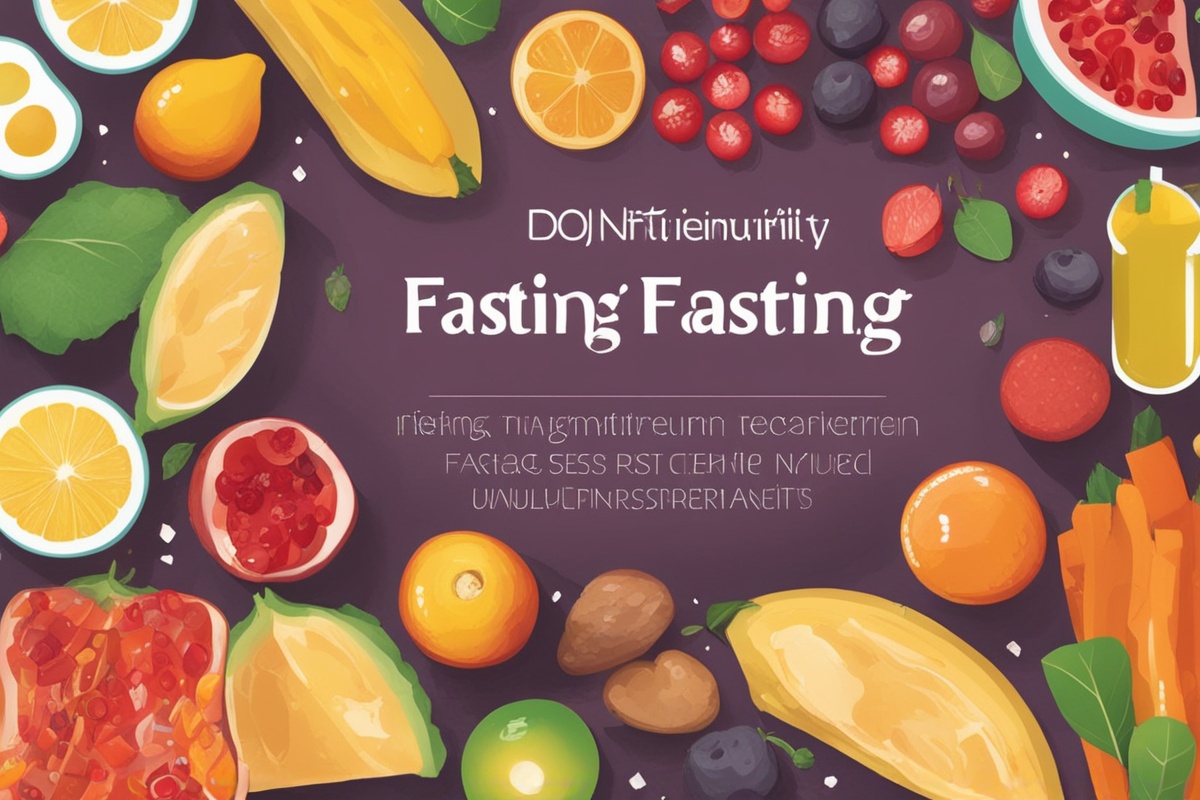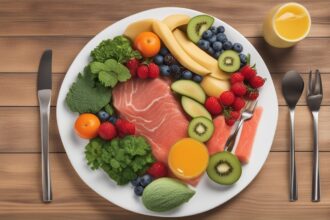Hey there, fasting enthusiasts! If you’re diving into the world of fasting—whether it’s intermittent fasting, water fasting, or a religious fast—you’ve probably wondered how to keep your body fueled with the right nutrients. Fasting can be a powerful tool for health, weight management, and even mental clarity, but it’s not just about skipping meals. Ensuring you’re getting enough micronutrients (those vital vitamins and minerals) is key to making the most of your fast without feeling drained or depleted. In this post, I’m sharing practical fasting tips to help you balance micronutrients, backed by science and sprinkled with real-world advice. Let’s explore how to fast smarter, not harder, and keep your body thriving!
What Are Micronutrients and Why Do They Matter During Fasting?
Micronutrients are the unsung heroes of nutrition—think vitamins like A, C, and D, and minerals like magnesium, potassium, and zinc. Unlike macronutrients (carbs, proteins, and fats), which provide energy, micronutrients support critical bodily functions like immune response, cell repair, and energy metabolism. During fasting, when food intake is limited or absent, your body relies on stored nutrients to keep things running smoothly. A deficiency in these tiny powerhouses can lead to fatigue, weakened immunity, or even long-term health issues (Institute of Medicine, 2001).
So, why should fasting folks care? Well, whether you’re doing a 16:8 intermittent fast or a longer multi-day fast, your body still needs these nutrients to function. Without proper planning, you might miss out on essentials during eating windows or pre-fast meals. That’s where smart fasting tips come in—helping you prioritize nutrient-dense foods and avoid common pitfalls. Let’s break down how fasting impacts micronutrient levels and what you can do about it.
How Fasting Affects Micronutrient Levels in Your Body
Fasting, especially prolonged fasts, can alter how your body accesses and uses micronutrients. During short-term fasts like intermittent fasting, your body typically has enough stored vitamins and minerals to get by, assuming you’re eating a balanced diet during feeding windows. However, water-soluble vitamins like vitamin C and B vitamins aren’t stored in large amounts, so they can deplete faster if you’re not replenishing them regularly (Kerndt et al., 1983). Fat-soluble vitamins (A, D, E, K) and certain minerals like iron stick around longer, but deficiencies can still creep in over time if your diet lacks variety.
Longer fasts—think 24 hours or more—can put additional stress on your system. Electrolytes such as sodium, potassium, and magnesium are especially critical during extended fasting, as they regulate hydration and muscle function. Research shows that low electrolyte levels can lead to symptoms like headaches, cramps, or dizziness, often called the “keto flu” in fasting communities (Veech, 2004). The good news? With the right fasting strategies, you can minimize these risks and keep your micronutrient game strong.
Practical Fasting Tips for Maintaining Micronutrient Balance
Now that we’ve covered the “why,” let’s get into the “how.” Balancing micronutrients while fasting doesn’t have to be complicated. It’s all about preparation, mindful eating during non-fasting periods, and listening to your body. Here are some actionable fasting tips to ensure you’re not running on empty:
- Prioritize Nutrient-Dense Foods: During your eating windows, focus on whole foods packed with vitamins and minerals. Think leafy greens for vitamin K, citrus fruits for vitamin C, and nuts for magnesium. A colorful plate is your best friend!
- Don’t Skip Electrolytes: Add a pinch of high-quality sea salt to your water or sip on bone broth during longer fasts to replenish sodium and potassium. This can help prevent cramps and fatigue.
- Time Your Meals Wisely: If you’re on a 16:8 schedule, break your fast with a balanced meal that includes a variety of micronutrients. Start with something light like a veggie-packed soup before heavier foods.
- Consider a Multivitamin: If you’re worried about gaps in your diet, a high-quality multivitamin can act as a safety net. Just don’t rely on it as your primary source—whole foods are always better (NIH, 2020).
These simple tweaks can make a huge difference in how you feel during a fast. I’ve personally found that planning my post-fast meals with a mix of veggies, lean protein, and healthy fats helps me avoid that sluggish feeling. What’s worked for you? Drop a comment below—I’d love to hear!
Key Micronutrients to Watch During Fasting
Not all micronutrients are created equal when it comes to fasting. Some are more likely to dip during periods of restricted eating, so let’s spotlight a few heavy hitters you should keep an eye on. Understanding these can elevate your fasting advice game and help you avoid common deficiencies.
- Magnesium: This mineral supports muscle relaxation and energy production. Low levels can cause cramps or irritability, especially during longer fasts. Find it in spinach, almonds, and dark chocolate (yes, a little treat can help!).
- Potassium: Crucial for heart health and hydration, potassium can drop during fasting due to reduced food intake. Avocados, bananas, and coconut water are great sources during eating windows.
- Vitamin D: Often called the “sunshine vitamin,” it’s vital for bone health and immunity. Since food sources are limited, consider sunlight exposure or a supplement if your levels are low (Holick, 2007).
- B Vitamins: These water-soluble vitamins (like B12 and folate) support energy and brain function. They deplete quickly, so include eggs, meat, or fortified foods in your diet when not fasting.
- Zinc: Important for immune function, zinc can be harder to get during restricted eating. Load up on pumpkin seeds, shellfish, or legumes when you break your fast.
Focusing on these nutrients has been a game-changer for me during my fasting journey. I used to feel wiped out after a 24-hour fast, but adding potassium-rich foods like avocado to my first meal made all the difference. Which of these are you prioritizing? Let’s swap some fasting hacks!
Common Mistakes to Avoid When Fasting for Micronutrient Health
Even with the best intentions, it’s easy to slip up when fasting. I’ve made plenty of mistakes myself—like thinking coffee alone could get me through a fast (spoiler: it didn’t). Here are some common pitfalls to dodge if you want to keep your micronutrient levels in check. These fasting tips are lessons learned the hard way, so you don’t have to!
First, don’t over-restrict during eating windows. I get it—fasting can make you want to “double down” on calorie cuts when you do eat, but slashing variety means missing out on essential vitamins and minerals. Studies show that overly restrictive diets, even with fasting, can lead to nutrient deficiencies over time (Trepanowski et al., 2017). Another mistake is ignoring hydration. Water isn’t just about quenching thirst—it helps transport nutrients and flush toxins. Skimping on fluids can mess with electrolyte balance, leaving you dizzy or weak.
Lastly, don’t assume supplements fix everything. Popping a multivitamin without addressing your diet is like putting a Band-Aid on a broken leg—it might help a little, but it’s not the solution. Focus on real food first, and use supplements as a backup. Avoiding these missteps can transform your fasting experience from “ugh, I’m exhausted” to “wow, I feel unstoppable.”
Should You Supplement During Fasting? Weighing the Pros and Cons
Supplements are a hot topic in the fasting world. On one hand, they can fill nutritional gaps, especially if your diet isn’t perfect (let’s be real, whose is?). On the other hand, fasting purists argue that supplements break the “spirit” of a fast by introducing external substances. So, what’s the deal? Let’s unpack this with some science-backed fasting guidance.
For most people, electrolyte supplements like sodium or magnesium are fine during fasting, especially longer ones, as they don’t typically contain calories or trigger an insulin response (Veech, 2004). However, multivitamins or protein powders might be better saved for eating windows, as they can contain fillers or sugars that disrupt fasting benefits. The National Institutes of Health suggests that while supplements can help with specific deficiencies, they’re no substitute for a varied diet (NIH, 2020). My take? Use them sparingly and strategically—maybe a magnesium pill if you’re cramping up, but don’t make it a crutch. Always chat with a healthcare provider if you’re unsure, especially if you’re on meds or have health conditions.
As we wrap up, remember that fasting isn’t a one-size-fits-all journey. Balancing micronutrients while fasting takes a bit of planning, but it’s totally doable with the right mindset and tools. These fasting tips—from prioritizing nutrient-dense foods to staying hydrated and avoiding common mistakes—can help you feel energized and supported, whether you’re fasting for a day or a week. The science is clear: micronutrients matter, and a little preparation goes a long way in keeping your body happy (Holick, 2007). So, experiment with what works for you, listen to your body, and don’t be afraid to tweak your approach. Got a favorite fasting hack for staying nutrient-rich? Share it below—I’m all ears! Let’s keep learning and growing on this fasting path together.
References
- Holick, M. F. (2007). Vitamin D deficiency. New England Journal of Medicine, 357(3), 266-281. https://doi.org/10.1056/NEJMra070553
- Institute of Medicine. (2001). Dietary Reference Intakes for Vitamin A, Vitamin K, Arsenic, Boron, Chromium, Copper, Iodine, Iron, Manganese, Molybdenum, Nickel, Silicon, Vanadium, and Zinc. National Academies Press.
- Western Journal of Medicine, 137(5), 379-399.
- National Institutes of Health (NIH). (2020). Dietary supplements: What you need to know. Office of Dietary Supplements. https://ods.od.nih.gov/HealthInformation/DS_WhatYouNeedToKnow.aspx
- Trepanowski, J. F., Kroeger, C. M., Barnosky, A., Klempel, M. C., Bhutani, S., Hoddy, K. K., … & Varady, K. A. (2017). Effect of alternate-day fasting on weight loss, weight maintenance, and cardioprotection among metabolically healthy obese adults: A randomized clinical trial. JAMA Internal Medicine, 177(7), 930-938. https://doi.org/10.1001/jamainternmed.2017.0936
- Veech, R. L. (2004). The therapeutic implications of ketone bodies: The effects of ketone bodies in pathological conditions: Ketosis, ketogenic diet, redox states, insulin resistance, and mitochondrial metabolism. Prostaglandins, Leukotrienes and Essential Fatty Acids, 70(3), 309-319. https://doi.org/10.1016/j.plefa.2003.09.007






